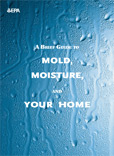Living near the coast can be such an enjoyable experience but as we know sometimes the water doesn’t always stay on the beach. Sometimes mighty storms can kick in, destroying your property and putting your family and pets in danger. While your home may be far from the shore, strong winds and floodwaters can be pretty damaging.
That’s why it’s necessary to create an evacuation plan to enhance safety during and after a hurricane. Often, when authorities declare a mandatory evacuation, you’ll have few days to prepare. It may not give you enough grace period to put everything in place. So preparing ahead of time will keep your family and pets safe while preventing any damages to your property.
Here’s is what to do to avoid last-minute stress to ensure you have an effective evacuation plan :
Gather your essential supplies
It’s often natural for people to run to the stores when the authorities issue a hurricane evacuation warning. So it helps to gather your essential items ahead of time to avoid last-minute troubles: Ensure to have the following:
- Chargers
- Extra batteries
- Candles or lamps
- Emergency home repair equipment and materials such as hammers, plywood, etc.
- First aid kit
- Prescription drugs
- Drinking water
- Ready-made food
- Flashlight
If you have to leave your home, carrying the above essentials will help through the season. Also, ensure to replenish these supplies if possible.
Protect your home.
Hurricanes can sweep landscaping materials and objects into dangerous weapons which damage doors, windows, and more. Usually, the rain that comes after a large storm enters your property through the already broken windows, doors, and openings on the roof.
While expensive, retrofitting your home is undoubtedly an intelligent move, and you can do it in various ways:
- Trim shrubbery and cut weak branches and trees that could fall on your house, causing damage.
- Protect your windows from damage by installing storm shutters. Besides, you can fit plywood panels to windows before the storm approaches.
- Use high-quality urethane-based fault to seal outside wall openings to prevent water penetration.
- Replace your home’s landscaping materials with shredded bark, which is lighter.
- Use tapered glass for your doors and cover them with plywood during the storm.
- Your exterior doors should be hurricane-proof.
- Place your items off the floor.
Check your insurance coverage.
Reviewing your homeowner’s insurance policy enables you to understand whether it covers your home repairs and belongings. Note that your insurance policy covers temporary repairs and additional living expenses if you have to relocate until the storm is over.
However, the insurance will not cover damages resulting from floodwaters during the hurricane season. That’s why you must look into flood insurance to cushion yourself against the unexpected.
Moreover, handling the floodwaters after the storm can be dangerous and a difficult task. Therefore, it’s also important to talk to flood professionals such as Floodx to help you handle the waters after the storm.
Google+








